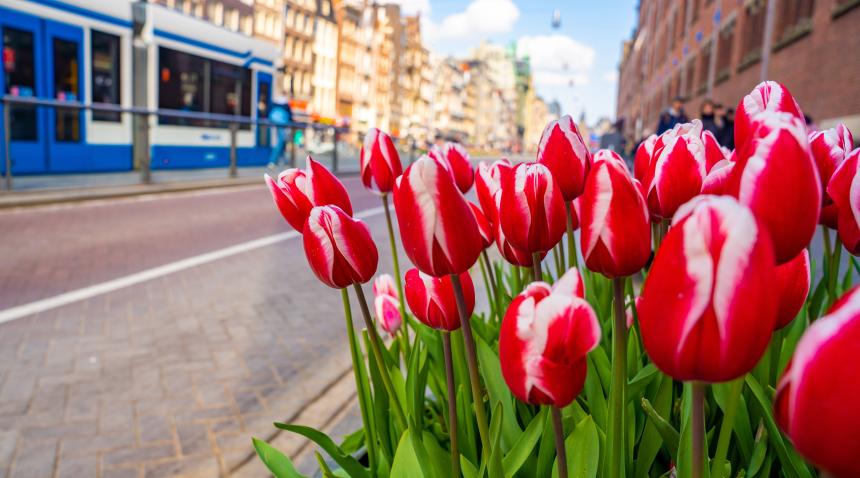
Births, deaths and marriages
In the Netherlands, events like births, deaths and marriages invite cultural conduct worth preparing for or keeping in mind when connecting with Dutch locals. Whether you’re served a beschuit met muisjes (aniseeds covered in a sugar shell) following a birth of a child from your colleague or friend, or receive an invite to a wedding, find out more on how the Dutch formally or informally prepare.
Births
In the Netherlands, many people choose to give birth at home. The birth is then announced either with a card inviting people to come and meet the new baby (kraambezoek), whilst sometimes people choose to put an announcement in the newspaper or put a wooden stork on the front of their house. Naturally, it is polite to phone ahead, but often people will visit unannounced to see the baby. Visitors will be served muisjes (aniseeds covered in a sugar shell: blue coloured for boys and pink coloured for girls) served on beschuit (hard biscuit) to celebrate the birth.
Deaths
When someone passes away it is common practice for their family to put an announcement in the local newspaper, including funeral plans. It is also common for someone’s (ex-) employer to announce the passing to their former colleagues. Traditionally, someone may lie in state in their house for people to pay their last respects. After the funeral, cake and coffee is usually served and people may come to pay their respects. Naturally, religious traditions are also followed depending on the cultural background of the person that has passed away.
Marriages
In the Netherlands, marriage is regarded as a secular legal procedure. Indeed, many couples choose not to get married and instead sign a samenlevingscontract (cohabitation contract), or geristreerd partnerschap (civil partnership), the latter having many of the same rights as marriage. If people do choose to marry, it may happen above the age of 30, and though many people choose to undertake a religious ceremony the marriage is officially completed at the registry.
Many Dutch people choose to have a slightly less formal marriage celebration than in other cultures. Wedding parties are often an extension of the couple’s personality, and so may be a little more exuberant than in other cultures.
Whether you interact with the locals at a birthday, wedding or funeral. The Dutch always appreciate it when you ask questions regarding do’s and don’ts at Dutch birthdays, weddings and funerals. Feel free to interact with the locals to find out more about our customs.



